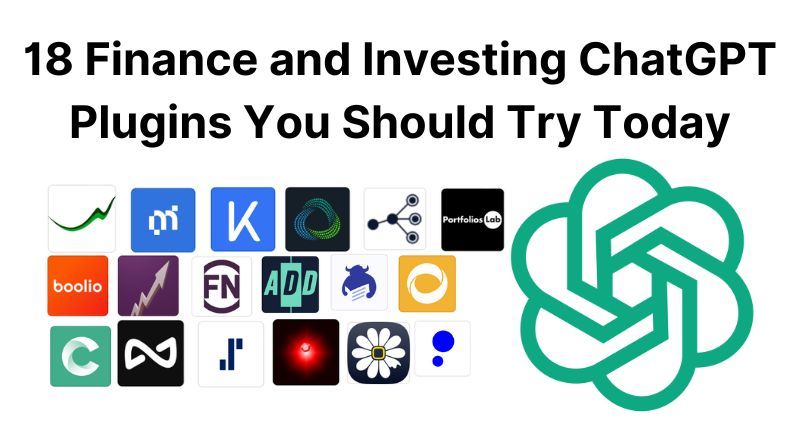In a surprising move, JPMorgan Chase, the largest bank in the United States, has set its sights on developing a generative AI tool called IndexGPT. This groundbreaking software aims to revolutionize the way investors pick, analyze, and recommend financial securities such as stocks, bonds, commodities, and alternatives. If successful, this venture could disrupt the world of traditional financial advisors, providing individuals like you and me with advanced AI-powered assistance in making investment decisions.
This could be a very BIG deal indeed.
The A.I software could be used by you and I to help pick, analyze, and recommend financial securities like stocks, bonds, commodities, and alternatives. Imagine having an AI-powered assistant to guide you through the complexities of investment decisions. It's like having a personalized financial advisor at your fingertips.
This development has the potential to disrupt the world of traditional financial advisors. The idea of relying on human expertise alone may soon become a thing of the past. J.P. Morgan's IndexGPT could democratize access to financial advice and empower individual investors to make informed decisions.
But where did this idea come from?
J.P. Morgan recently applied for a trademark for 'IndexGPT,' although it's still unclear whether it would be made available to consumers or exclusively for internal use by employees at first. The trademark application mentioned "selection of financial securities and financial assets" as well as "software for analyzing and selecting securities tailored to customer needs."
The decision to pursue generative AI aligns with the vision of JPMorgan's CEO, Jamie Dimon, who has been vocal about the company's focus on artificial intelligence. In April, Dimon revealed that JPMorgan already has over 300 AI use cases in production, covering areas such as risk assessment, marketing, customer experience, and fraud prevention. He emphasized the crucial role of AI and data in the company's future success, stating that the implementation of new technologies is of utmost importance.
If J.P. Morgan does launch IndexGPT for consumer use, it would be the first financial services firm to introduce a generative A.I product in this domain. Considering that J.P. Morgan is one of the largest banks in the world, the potential impact is significant.
It's truly remarkable to witness the rapid integration of generative artificial intelligence across various industries. It's no longer just a buzzword; it's a tangible force transforming how we work and make decisions. This is further evidenced by the recent earnings report from NVIDIA, a leading tech company, which highlighted the real-world applications and success of AI.
J.P. Morgan's move toward AI is not surprising. They have committed substantial resources to develop their AI capabilities, with over 2,000 data scientists and machine learning engineers dedicated to this initiative. This demonstrates the recognition within the financial services industry that AI will play a pivotal role in shaping the future of investment and wealth management.
In fact, J.P. Morgan is not alone in this endeavor. Morgan Stanley has already announced the rollout of its generative A.I service to 17,000 financial advisors, aiming to enhance client service. Their Chief Data Officer explained the potential benefits, stating that advisors would essentially have access to the knowledge of the most knowledgeable person in Wealth Management instantly. Imagine having the expertise of renowned analysts and strategists at your disposal every day.
However, as we've seen with past technological advancements, being the first to market does matter. Just like "Googling" has become synonymous with online searches, the term "ChatGPT" has already become a verb. The firm that successfully launches the first official generative A.I software for investing and wealth management is likely to gain a significant market share.
Rotten Apple
In contrast to JPMorgan's proactive approach, Apple has taken a different stance regarding generative AI tools. While many tech giants are rapidly adopting such tools, Apple has imposed restrictions on the use of ChatGPT and similar AI models. An internal document from Apple has revealed concerns about the potential compromise of sensitive data.
Apple specifically restricted the use of GitHub's AI tool called Copilot, which automates software code writing and is owned by Microsoft. The company's decision reflects its cautious approach to safeguarding confidential information and highlights the potential risks associated with generative AI technologies.
Moving Forward with Generative AI
Last month, Bloomberg made an exciting announcement in the field of language models, introducing their own large language model (LLM) called BloombergGPT. This finance-focused LLM boasts an impressive 50 billion parameters, tailored specifically for the finance industry. Although it is smaller than GPT-4, BloombergGPT claims to outperform existing models, although it's important to note that the evaluation did not include GPT-3 or GPT-4.

Clearly, the world is rapidly changing right before our eyes. The integration of AI into the financial sector represents a monumental shift in how we interact with investment information and make financial decisions. It's a testament to the transformative power of technology and its ability to revolutionize established industries.
So, hold on tight and get ready for the future. The advent of AI-powered financial assistants like IndexGPT could reshape the investment landscape, giving individuals unprecedented access to sophisticated tools and knowledge. The potential for democratizing wealth management is within reach. Exciting times lie ahead, and it's up to us to embrace these transformative developments.









